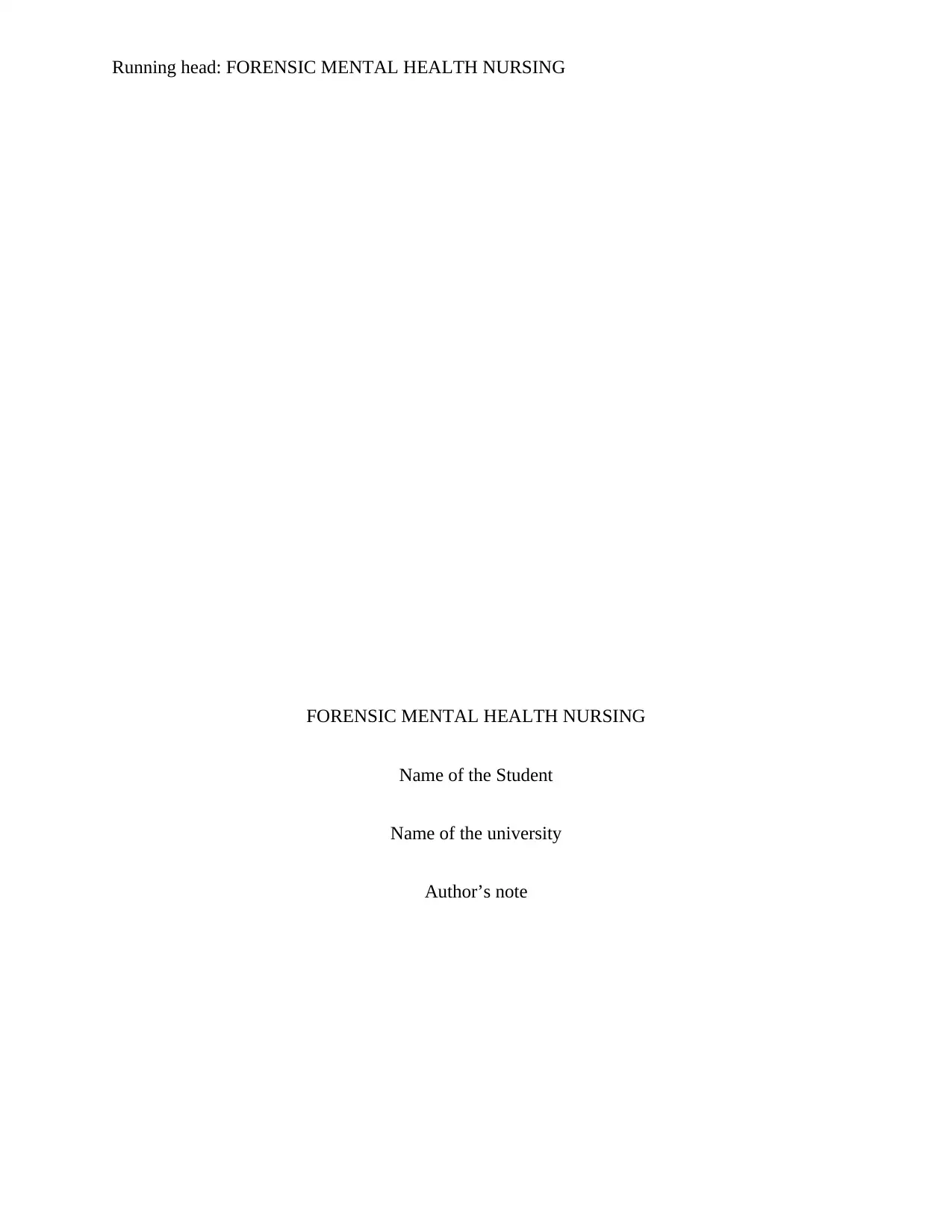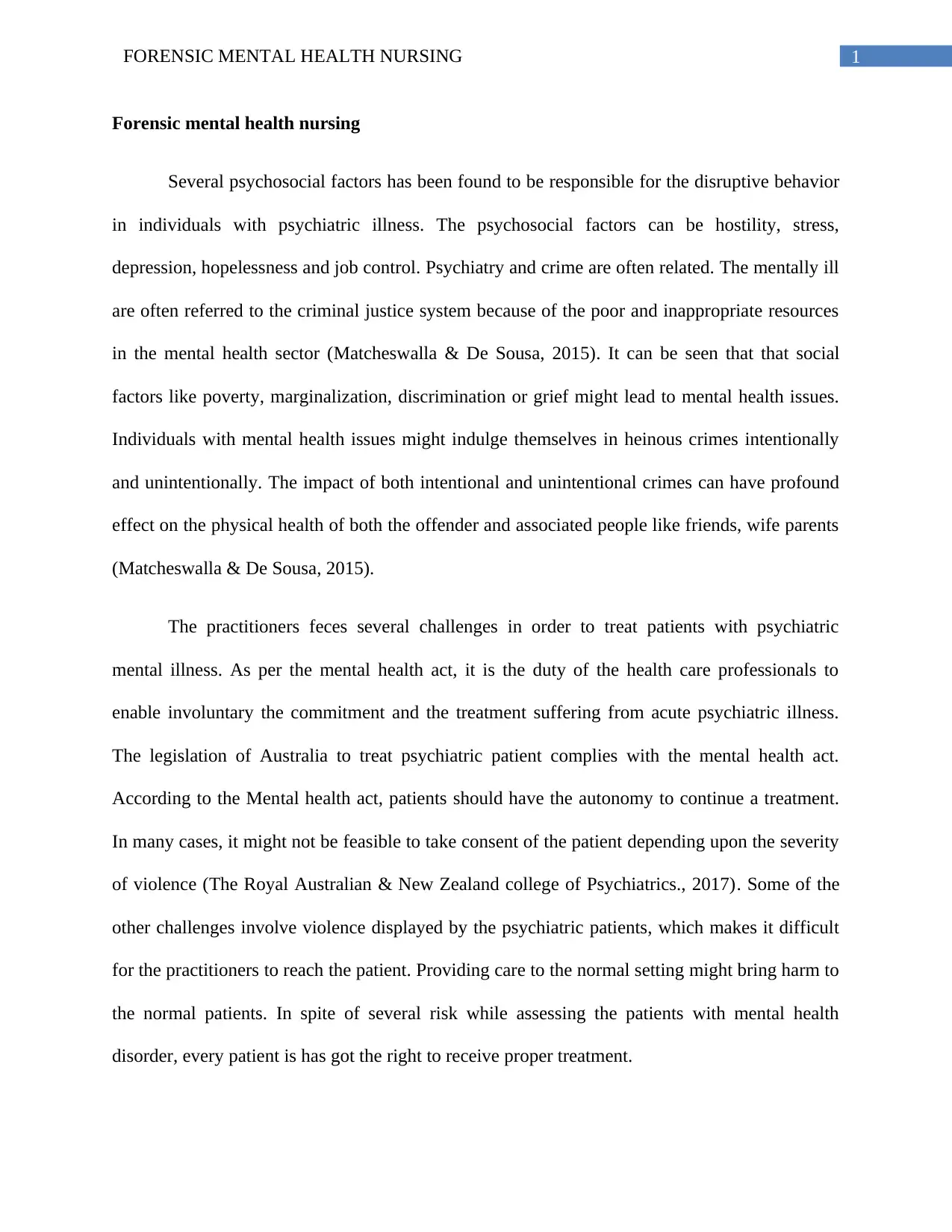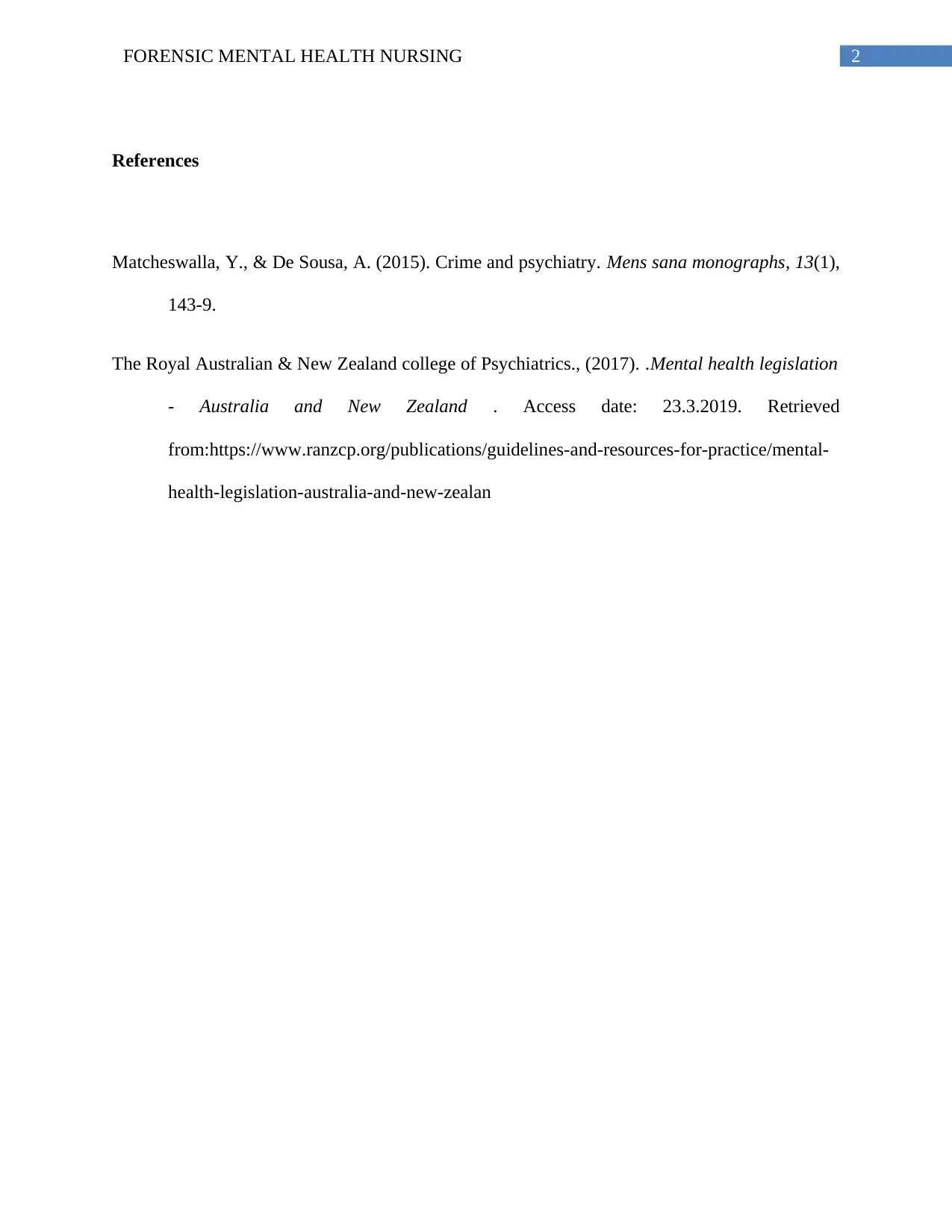Forensic Mental Health Nursing: Treatment and Ethical Dilemmas
VerifiedAdded on 2023/04/10
|3
|365
|199
Essay
AI Summary
This essay provides an overview of forensic mental health nursing, highlighting the psychosocial factors contributing to disruptive behavior in individuals with psychiatric illnesses and the correlation between mental health and crime. It addresses the challenges faced by practitioners in treating patients, including violence and the need to balance patient autonomy with necessary involuntary treatment under the Mental Health Act. The essay also touches on the ethical considerations and the importance of providing proper care to patients with mental health disorders, referencing relevant literature and legal frameworks in Australia. Desklib offers this essay as a resource for students studying forensic mental health nursing, providing insights into the complexities and considerations within this field.
1 out of 3










![[object Object]](/_next/static/media/star-bottom.7253800d.svg)